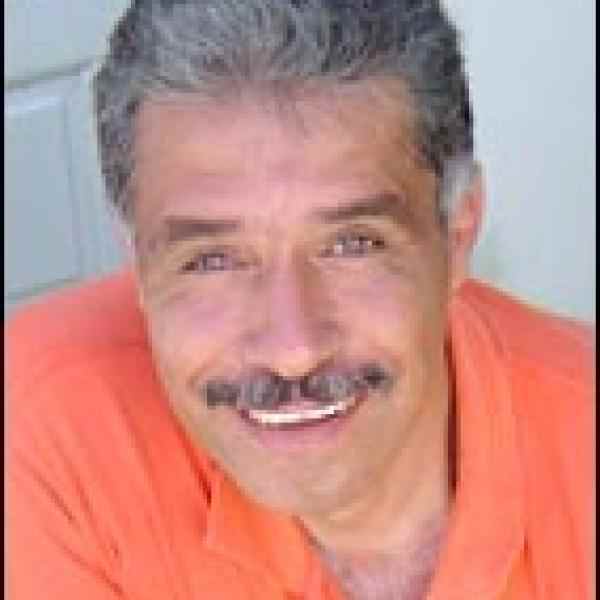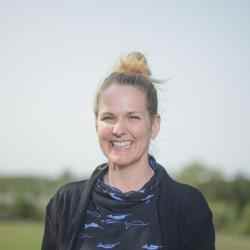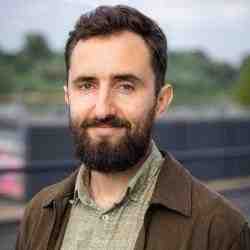Introducción
Not satisfied with the assumed opposition between environmental protection and economic growth, Marcos Bitencourt pioneers a microscale recycling industry that puts market power in the hands of the rural and urban poor.
La idea nueva
Marcos is transforming the recycling industry in Brazil by creating new markets for recycled goods in poor, traditionally marginalized communities. Where others see garbage, he produces value—in terms of economic benefit, social empowerment, and environmental preservation.
His first innovation stems from the realization that poor, rural communities can form robust markets when they are offered products that truly meet their needs. He works with rural villagers to identify and design products that can create real economic benefits for their families and neighbors. In doing so, Marcos creates broad demand for his goods, clearing the way for the growth of a new industry.
The structure of this industry forms his second innovation. Marcos has eliminated the gap between the raw materials of the urban street collector and the finished products sold by businesses, enabling collectors to create their own high-quality goods for direct sale. Using his methods, each collector produces goods for which strong markets already exist, ensuring a much higher profit margin while offering a new product to a population in need. Through his new chains of production and consumption, Marcos has dramatically reduced the materials cost of production thanks to efficient recycling, and greatly increased the earnings potential of both collectors and rural communities.
As they create new economic opportunities for hundreds of urban and rural poor, Marcos’ innovations promote environmental preservation by providing a model of profitability and sustainability for the struggling Brazilian recycling industry. This new business model is positioned to change recycling and business model practices across the region.
El problema
Movements for recycling have struggled to take root in Brazil. Inefficient mechanisms for collection and processing make recycling a costly investment for businesses and governments alike, and weak local markets for recycled goods make it unlikely that such investments will bring profitable returns. This trend holds particularly true for PET, or polyethylene terephthalate, the raw material for 70 percent of the plastic packaging in Brazil today. Because it cannot be compacted and does not decompose quickly, PET is a perfect candidate for recycling programs, but Brazil recycles only a third of its available stock of PET waste each year. As a result, PET adds tons per year to landfills already overflowing with waste. In these landfills, PET forms impermeable layers and obstructs the circulation of gases and liquids, hindering the decomposition of organic materials. When the plastic makes its way into water systems, it blocks storm drains and endangers aquatic life.
Despite such problems, the production of PET is increasing rapidly, vastly outpacing the capacity of recycling facilities. Per kilogram, recycled PET brings in less than a fourth of the price of aluminum, and it is subject to a 15 percent industrial products tax (IPI) from which other recycled materials are exempt. There are dozens of uses for recycled PET, but its low selling price and high expense have made it nearly impossible for public or private organizations to fill the gap between recycling capacity and production reality.
Recycling is a great ally of environmental preservation and, as a growing industry in its own right, it can be a powerful spur to economic development. Returning recyclable materials to companies can help them reduce their production costs and reap considerable savings on energy and raw materials. For large industries seeking new ways to cut costs and improve their public image, movements for recycling can be timely partners. However, recycling must be economically viable to function effectively, and in today’s Brazil, it is most definitely not.
La estrategia
Concerned about the problems of urban waste, marginalized communities, and a struggling recycling industry, Marcos Bitencourt developed a solution to address all three, in the form of a creative production chain for recycled PET. He promotes recycling by identifying its value for producer and consumer alike, and helps each achieve a profitable return on investment.
His process works in three stages. First, he designs products that can be easily manufactured using recycled PET, such as cages for fish farming and multiuse nets. Then, he works directly with local street recyclers, teaching them to manufacture these new products. Where recycled PET in its raw form would bring low prices, these finished products dramatically increase the earnings potential of the material. Finally, to ensure a high return on investment for all concerned, Marcos meets with rural residents to determine their specific needs and match them with the products that will benefit them most, in the process building markets for producers of recycled PET.
Marcos plans each design carefully to meet the needs of marginalized communities in Brazil. His products generally replace inaccessible and expensive goods that rural populations need but often cannot secure. By substituting traditional materials with recycled PET, Marcos dramatically increases the affordability and availability of these goods to small, rural producers. In his pilot programs, Marcos principally produced fish cages and multiuse nets for use in fishing villages. His plastic nets and cages were stronger and lighter than those made from traditional materials, and they helped fishermen produce higher yields at a lower cost.
Marcos works to stimulate demand for these products by working directly with communities in economic need. This crucial component of his program mirrors and balances the production side, ensuring that supply and demand grow together and support each other. By working directly with the potential consumers of recycled PET, Marcos is able to identify the specific kinds and quantities of products that will best benefit these consumers. In the process he creates a loyal and empowered customer base that is invested in the success of the recycling programs.
Currently, Marcos works with 32 collectors from the cities of Olinda and São Lourenço da Mata. He recently helped 10 of them launch their own cooperative, which now rents a production facility and has purchased machinery that enables them to produce more nets at a faster pace. On the demand side, Marcos has worked with a focus group of 84 families with ties to larger social networks. Through these beginnings, Marcos is establishing a diverse array of products and services.
To extend the project’s reach, Marcos has partnered with the Mandalla Agency, the Ministry of Labour and Employment, and the Bank of Brazil Foundation. With his partners, he is incorporating his efficient recycling model into youth job-training programs across the country. As the hundreds of young people in these programs learn about and build upon his ideas, their efforts and innovations will stimulate both production and consumption of recycling in Brazil.
La persona
Marcos Bitencourt was born and raised in the city of São Lourenço da Mata, in the state of Pernambuco. He began organizing boys to recycle and sell waste materials by the age of 12, earning money against his mother’s will by selling glass, iron and other materials. In high school, he founded a neighborhood sports club, the Sociedade Esportiva do Bairro.
In 1983, Marcos began work supervising extension programs for the Agricultural Technical School (Escola Técnica de Agricultura) of Pernambuco Federal Rural University. This work, which offered technical support to local farmers, brought Marcos into close contact with rural communities in Brazil.
Marcos’s earlier interest in recycling led him to take a close interest in PET from the outset. In 1996, he took a course in hydroponics, using PET containers to grow a variety of plants. Knowing the many uses of PET—along with the many dangers it poses to the environment when trashed—he committed himself to developing products and recycling processes to keep PET in use and out of landfills.
Starting in 2003, Marcos dedicated himself to a campaign using PET for the social and economic benefit of two marginalized groups: collectors of recyclable materials and small rural landowners. In 2004, he left the agricultural school to focus on this campaign full time. He created the organization Mundo PET (PET World), established a working group, and has focused since then on expanding the depth and reach of his program.




